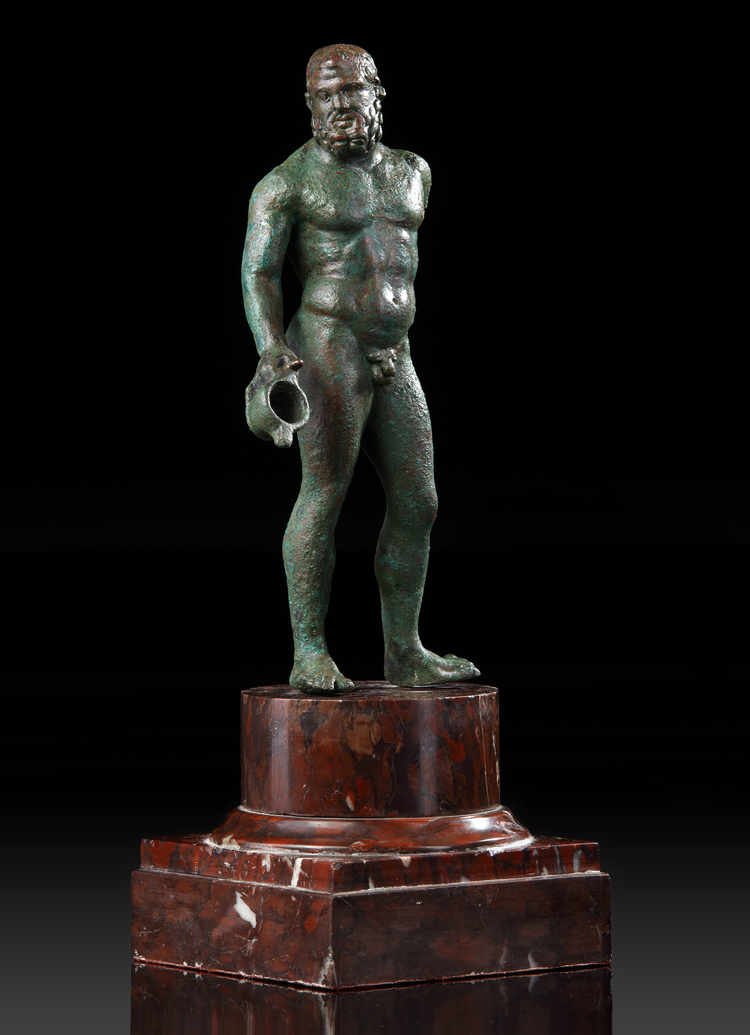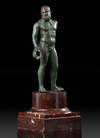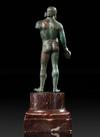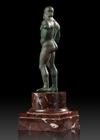A GRECO ROMAN BRONZE STATUETTE OF HERAKLES, CIRCA 1ST CENTURY B.C. / A.D.
There are rare depictions of Herakles in which he holds a kantharos in addition to his usual attributes of which this an example. The composition of this exquisite statuette presents the apotheosis of Herakles: after his superhuman deeds, the hero was accepted to the eternal feast of the Olympians. He wears a fillet in the hair, a sign of divinization, and he holds a drinking cup in his right hand. Although the expression of weariness appears on his finely modeled face, his trained body is still in excellent shape. The exaggerated muscular forms and proportions are those of a professional mature athlete reminding us also of the famous Farnese Herakles statue from the Palazzo Farnese in Rome. In his left hand he would have held a club and held it upwards resting on or near his shoulder. Accompanied by an old red marble stand.
20.5 cm. height, excluding base stand.
1240 grams.
CONDITION
Very fine condition.
PROVENANCE
Previously in a private Belgium family collection, kept in the Netherlands since 1960 up to now.
THE MYTHOLOGY
In the time after the famous 12 deeds which Herakles had to spend for Eurystheus (Dodekathlos). After that he travelled the world and did heroic deeds everywhere. He liberated Prometheus, fought against centaurs, defeated the Amazons, accompanied the Argonauts and killed the giant Antaios in Africa, to name but a few. On this journey he finally came to Spain, after digging through the narrowness between Africa and Europe and unifying the ocean with the Mediterranean Sea (Diodor Sic. I.c.c.17.18.p.157). On this journey the sun burned him so strongly in Africa that he finally shot at it with an arrow out of impatience. For this bold act Apollo worshipped him a golden cup, which he used instead of the ship, and thus not only went over to Spain but also together with the captured cattle of the sun god in the same cup again went back, and afterwards Apollo returned his cup again (Apollodor I.II.c.4.s10).




